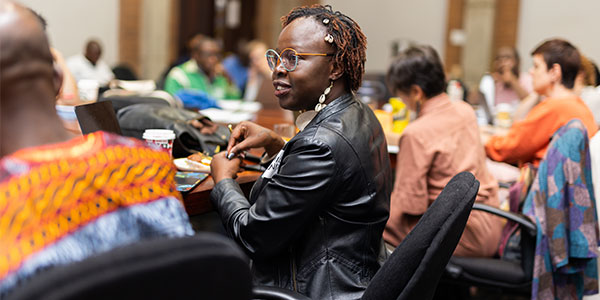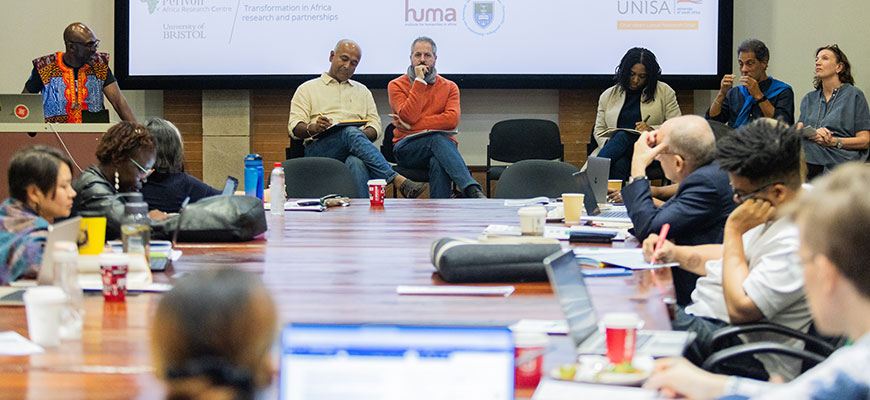Beyond Binaries project challenges practices in knowledge production
- Wits University
Scholars say new forms of solidarity are desperately needed and that the social sciences must continue to resist and dismantle longstanding hierarchies.

The School of Social Sciences at Wits University, in partnership with the French National Research Institute for Sustainable Development (IRD), hosted a two-day workshop titled Beyond Binaries: Global Circuits of Influence, Exchange and Knowledge Production on 18–19 September at the Wits Humanities Graduate Centre. The event brought together scholars, researchers, and students to explore new ways of thinking about decolonisation, academic exchange, and fieldwork.
Opening the discussions, Dr Joel Quirk from the Department of Politics at Wits described the workshop as an effort to rethink inherited categories of “the North” and “South,” and to reimagine how global knowledge systems are structured. “We want to collapse this binary and begin to think about multiple starting points and contributions,” he said.
The workshop is part of a year-long programme that will discuss three themes: Global Circuits of Influence and exchange – moving beyond binaries to rethink power, hierarchy, solidarity and patterns of global influence; Transformation and Decolonisation – finding ways to integrate decolonial theory with decolonial praxis, and thereby prevent the reduction of decolonialisation to a self-selecting theoretical abstraction; and finally Fieldwork, Knowledge and Partnerships – confronting extractive practices, the possibilities and pitfalls of partnerships; imagining equitable collaborations, and interrogating funding streams and their effects.

Quirk also highlighted that while there has been a plethora of seminars of decolonisation, the project has “steadily been neutralised into theoretical abstraction. Decolonisation is now this boutique course offered in the humanities that operates at a very high level of abstraction, and which understands decolonization not in terms of practical politics but in terms of theoretical conversation. The political edge has been lost and diluted.”
In a compelling presentation, Dr Divine Fuh, Director of the Institute for Humanities Africa (HUMA) at the University of Cape Town, invoked the allegory of the *tokoloshe to illustrate how coloniality continues to haunt African scholarship.
“Even when you move, the tokoloshe moves with you,” he remarked. Fur argued that decolonisation must engage deeply with the epistemological, linguistic, and structural legacies of colonialism. Through the Africa Charter for Transformative Research Collaborations, he urged for equitable partnerships that prioritise African epistemologies and “create dignified cohabitation.”
Professor Noor Nieftagodien, South African Research Chair in Local Histories, Present Realities, shifted focus to the politics of knowledge preservation, arguing that “we are in a new archival moment” where universities no longer hold exclusive authority. He cautioned that institutions often domesticate emancipatory ideas and urged collaboration with communities and activists who are creating independent, alternative archives.
Across the two days, the workshop challenged participants to move beyond inherited academic hierarchies and to envision more just, inclusive, and collaborative modes of knowledge-making. The workshop will continue into follow-up projects and ten fieldwork research bursaries for current PhD students and will eventually culminate in a final project conference in 2026.
*A tokoloshe is a common figure in South African folklore and is often a malevolent spirit used by witches to bring trouble, illness, bad luck, or even death to targeted individuals.

